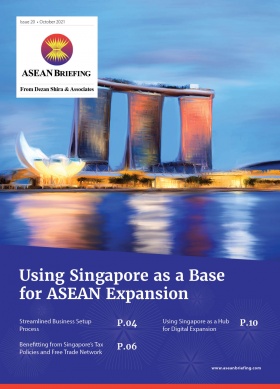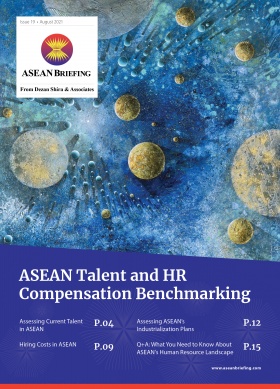New Tax Measures Impacting Businesses and Individuals in Malaysia’s Budget 2022
On October 29, 2021, Malaysia unveiled a variety of tax measures in its new budget that will impact businesses and individuals in 2022.
This is the largest ever state budget, worth some 333.2 billion ringgit (US$80.2 billion) as the government aims to boost post-pandemic growth. Further, this is the first budget under the administration of prime minister Ismail Sabri Yaakob, Malaysia’s third prime minister in two years, following the resignation of Muhyiddin Yassin after only 18 months in power.
The government has stated that the budget is designed to build resilience, build economic recovery, and drive reforms by providing industrial incentives, cash handouts for poor households, and a one-time tax for high-income businesses. Finance minister Zafrul Aziz expected to grow between 5.5 to 6.5 percent in 2022, after a contraction of 5.6 percent in 2020.What are the key tax measures impacting businesses?
Imposition of the prosperity tax
Also known as cukai makmur, companies with chargeable income of more than 100 million ringgit (US$24 million) must pay an additional nine percent in corporate income tax (CIT) in 2022. This means businesses will pay a total of 33 percent in CIT.
The government has stated that this ‘windfall tax’ would be a one-off initiative given the high-expenditure requirements of the government to tackle the pandemic.
Tax on income from outside of Malaysia
Effective from January 1, 2022, Malaysian residents will be taxed on their foreign-sourced income that is received in Malaysia. Through this measure, the government hopes to comply with the scope of the OECD Forum on Harmful Tax Practices and could help remove Malaysia from the European Union’s ‘grey list’ of tax havens.
For countries that have a double taxation avoidance agreement with Malaysia, the taxpayer can claim tax relief for interest, royalty, and technical fees.
(Effective from January 1, 2022, until December 31, 2026, the government has decided to exempt income tax on foreign-sourced income for individual taxpayers. Read more here.)
Deferment of income tax installment
Micro, small, and medium-sized enterprises (MSMEs) can defer the monthly installments of income tax for six months until June 30, 2022.
Tax identification number
To broaden the tax base, the government will introduce a tax identification number (TIN) for taxpayers in 2022. The TIN will be automatically issued to every person and will become a requirement to be disclosed in all types of transaction documents.
Tax treatment for unabsorbed business loans
Any unabsorbed business losses from 2019 YA onwards can be carried forward for a maximum of 10 years, compared to the previous seven, and unutilized losses from 2018 YA can be carried forward until 2028.
Extension of the tax deduction on rental reduction
The government will extend the tax deduction on rental reduction for business premises for another six months from January to June 2022. This incentive is available to taxpayers who provide a rental reduction of at least 30 percent.
Extension of the tax rebates for new MSMEs
The income tax rebate incentive of up to 30,000 ringgit (US$7,200) has been extended for new MSMEs commencing operations by December 31, 2022. This rebate is available for the first three years for new SMEs.
Requirement for tax compliance certificate
Malaysia’s Inland Revenue Board now requires businesses to obtain a tax compliance certificate (TCC) as a prerequisite if they want to participate in government procurement. This is effective from January 1, 2023.
Tax incentives for the Digital Ecosystem Acceleration Scheme
Under this scheme, businesses that were digital technology providers or digital infrastructure providers are provided tax incentives under the Digital Ecosystem Acceleration Scheme (DESAC).
Digital infrastructure providers are eligible for an investment tax allowance of 100 percent on capital expenditure for qualifying activities for up to 10 years. Applications are open from October 30, 2021, until December 31, 2025.
Stamp duty exemption for peer-to-peer financing
The government will provide a 100 percent stamp duty exemption on loan/financing agreements that are executed between MSMEs and investors who have raised funds for registered P2P platforms. This incentive is effective from January 1, 2022, to December 31, 2026.
Stamp duty exemption for mergers and acquisitions
The government will extend the stamp duty exemption for mergers and acquisitions (M&A) instruments for one more year.
Stamp duty exemption for loan restructuring
Stamp duty exemption for loan rescheduling or restructuring will be extended until December 31, 2022.
Review of stamp duty for the transfer of listed shares
The government will propose that contract notes related to the sale of listed be increased to 0.15 percent, and the total stamp duty cap of 200 ringgit (US$48) be removed.
Import duty and sales tax exemption for electric vehicles
The government will give full import duty exemption on electric vehicle components in addition to full excise duty and sales tax exemption.
Introduction of the Special Voluntary Disclosure Program
The Special Voluntary Disclosure Program (SVDP) is a program to encourage taxpayers to voluntarily disclose any unreported income and settle their tax arrears. An SVDP for indirect taxes will be introduced in phases:
- The first phase — remission on penalties of 100 percent; and
- The second phase — remission on penalties of 50 percent.
Imposition of service tax on delivery services
A service tax will now be imposed on delivery services including those provided by e-commerce platforms. This excludes food, beverage, and logistics delivery services.
Imposition of sales tax on low-value goods
Low-value goods will now be subject to sales tax to ensure fair tax treatment for locally manufactured and imported goods.
Extension of sales tax exemption for passenger motor vehicles
The government has extended the sales tax exemption for passenger vehicles for a further six months from January 1, 2022, to June 30, 2022.
There are two incentives under this scheme:
- A 100 percent exemption to the sale of locally assembled passenger vehicles; and
- A 50 percent exemption on imported passenger vehicles.
What are the key tax measures impacting individuals?
Extension of the special income tax rate to non-Malaysian individuals holding key positions
This tax incentive offers a flat rate 15 percent income tax rate to non-citizen individuals who hold C-suite positions in companies engaged in strategic investments in Malaysia.
They must adhere to the following criteria:
- Receive a basic monthly salary of not less than 25,000 ringgit (US$6,018);
- Must hold a key position (C-suite) in the company, responsible for setting business strategies and operations.
- Must be a Malaysian tax resident for each YA throughout the flat tax rate treatment; and
- Must receive approval from the Malaysian Investment Development Authority (MIDA).
Expansion of the tax relief for medical expenses
The scope of relief under this incentive has now been expanded to include costs incurred for examination or consultation relating to mental health.
Expansion of EPF contributions
The minimum monthly contributions to the Employees’ Provident Fund (EPF) will continue to be set at the reduced rate of nine percent (from 11 percent) until June 2022. This has also been expanded to include voluntary contributors (self-employed).
The EPF manages the compulsory savings plan and retirement planning for private-sector workers in Malaysia.
Expansion on the tax relief for SOCSO payments
The tax relief on the individual Social Security Organization (SOCSO) contribution has been increased from 250 ringgit (US$60) to 350 ringgit (US$84) and expanded to include contributions under the Employment Insurance System Act 2017.
Review of real property gains tax
Currently, the disposal of real property, including shares in real property companies, by citizens, permanent residents, and persons other than companies is subject to a real property gains tax (RPGT) of five percent. This is applicable in the sixth and subsequent years after acquisition.
The government is proposing that the RPGT rate after the sixth and subsequent year after acquisition be reduced to between five and zero percent.Extension of tax relief for domestic tourism
The tax relief for domestic travel expenses for tourism has been extended from January 1, 2022, to December 31, 2022. This incentive provides tax relief of up to 1,000 ringgit (US$240).
Expansion of tax relief on upskilling course fees
Under this incentive, an applicant is eligible for tax relief on fees expended on courses for upskilling or self-enhancement, limited to 1,000 ringgit (US$240) per YA. This has now been increased to 2,000 ringgit (US$481) until YA 2023.
Extension of tax relief for deferred annuity premium payments
Budget 2022 has extended the tax relief of up to 3,000 ringgit (US$722) available for those who deferred their annuity premium payments until 2025.
Tax relief on expenses related to electric vehicle charging facilities
The government has provided tax relief of up to 2,500 ringgit (US$601) on expenses related to the installation, purchasing, or rental of electric vehicle charging facilities. This is effective from YA 2022 until 2023.
About Us
ASEAN Briefing is produced by Dezan Shira & Associates. The firm assists foreign investors throughout Asia and maintains offices throughout ASEAN, including in Singapore, Hanoi, Ho Chi Minh City, and Da Nang in Vietnam, Munich, and Esen in Germany, Boston, and Salt Lake City in the United States, Milan, Conegliano, and Udine in Italy, in addition to Jakarta, and Batam in Indonesia. We also have partner firms in Malaysia, Bangladesh, the Philippines, and Thailand as well as our practices in China and India. Please contact us at asia@dezshira.com or visit our website at www.dezshira.com.







